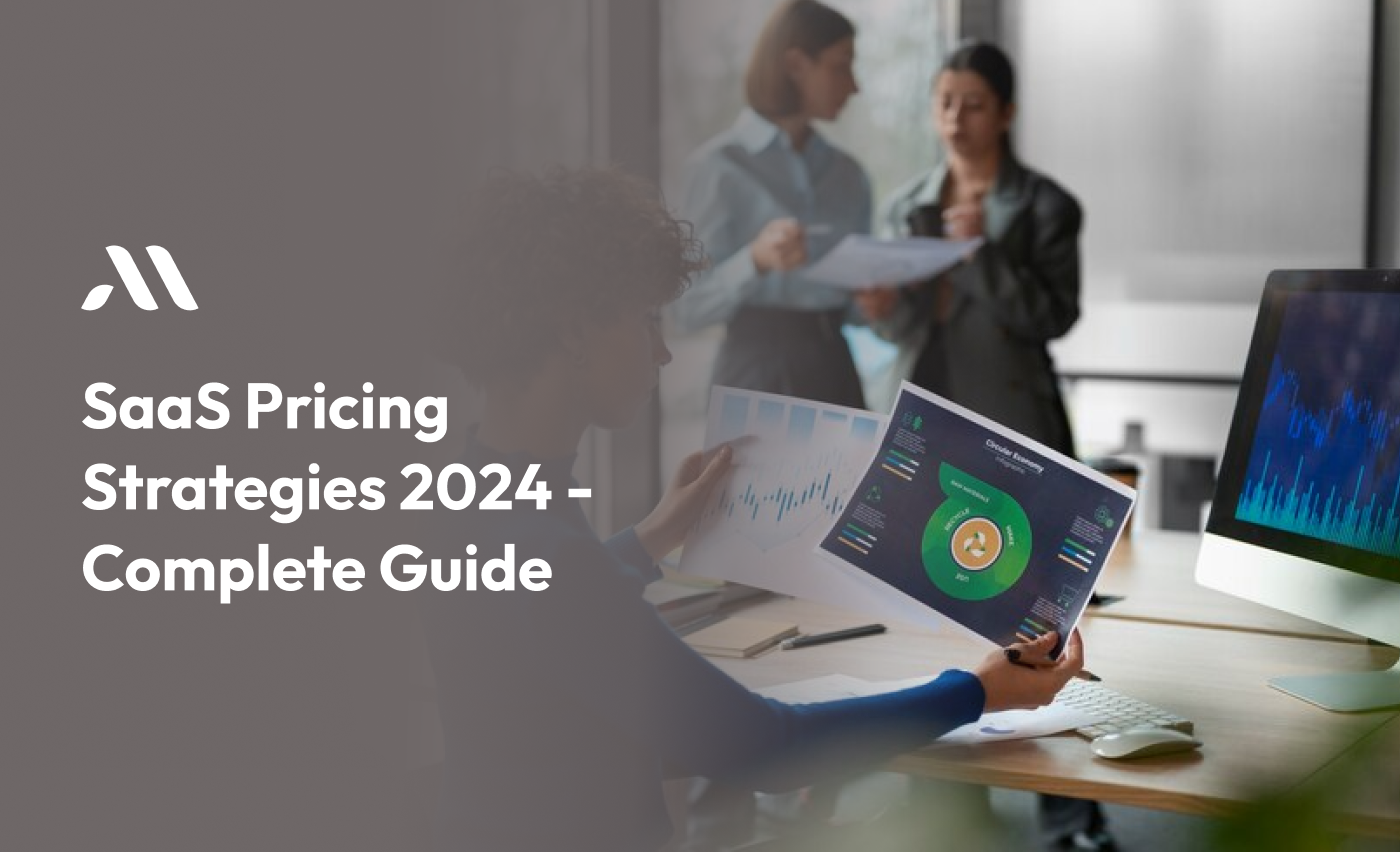As a business owner, understanding how to price your SaaS (Software as a Service) product can be tricky. You want to find a balance that makes your service affordable while ensuring your business is profitable. In this article, we will guide you through SaaS pricing strategies for 2024. This will help you make smart decisions when setting prices, attracting customers, and growing your business.
What is SaaS Pricing?
SaaS pricing strategies are methods companies use to charge for their software services. Unlike traditional software, where customers pay once to own the product, SaaS helps users pay regularly (like monthly or yearly) to access the software. The challenge is finding the right price to keep customers happy while making enough money to cover costs.
Why is SaaS Pricing Important?
Setting the correct price for your SaaS product can affect how well your business grows. Too high, and you may scare customers away; too low, and you won’t make enough money to cover your expenses.
Note: Pricing impacts customer trust. Many customers believe that higher prices mean better quality, but this isn’t always the case. That’s why choosing the right SaaS pricing strategies is important for your business's success.
Types of SaaS Pricing Strategies
Here are some common SaaS pricing strategies used in 2024:
1. Freemium Model
In this strategy, the company offers a basic version of the software for free. To get access to premium features, customers need to pay. The freemium model is great for attracting new users, but it requires a balance between free and paid features.
Tip: Make sure the free version is useful, but leave some key features behind the paywall to encourage upgrades.
2. Flat Rate Pricing
Flat-rate pricing means charging the same price for all users, no matter how much they use the service. This strategy is simple and easy to understand, making it a good choice for small businesses.
Remember: A SaaS development company can help you decide if flat-rate pricing is the best fit for your product based on your goals and customer base.
3. Usage-Based Pricing
With this strategy, customers are charged based on how much they use the service. This is common for companies that provide cloud storage or other services where usage varies between customers. For example, if one customer uses 10 GB of storage, they pay less than someone who uses 50 GB.
Around 34% of SaaS businesses are now using usage-based pricing because it allows flexibility and fairness for customers.
4. Tiered Pricing
Tiered pricing offers multiple pricing levels or “tiers” based on features or usage. Each tier provides more value, with the higher tiers being more expensive. This model works well because it caters to different customer needs, from individuals to large businesses.
Example: A SaaS development company might offer three tiers for their product:
Basic: $10/month for individuals
Pro: $30/month for small teams
Enterprise: $100/month for larger companies
“Tiered pricing lets customers choose the right package for them, which increases satisfaction and reduces churn.” – SaaS Pricing Expert
5. Per-User Pricing
This strategy charges customers based on how many people will use the software. It is easy to understand and works well for companies offering collaboration tools or team-based services.
Tip: Make sure your pricing is fair as customers might feel they’re paying too much if they add just a few users.
6. Pay-As-You-Go Pricing
This pricing strategy is similar to usage-based pricing but with more flexibility. Customers pay only for what they use, whether that’s data, features, or time spent on the service. This can be ideal for businesses looking for flexible, low-commitment options.
Note: Make sure to provide clear information on how the billing works so customers don’t get confused about charges.
7. Per-Feature Pricing
This model allows customers to pay based on the features they want. For example, a SaaS development company offering a project management tool might charge extra for advanced features like time tracking or reporting.
Remember: Don’t over-complicate things. Too many options can confuse potential customers.
8. Bundled Pricing
With bundled pricing, you group several products or services and offer them at a single price. This strategy encourages customers to buy more since the overall deal seems better.
SaaS companies using bundled pricing have seen a 15% increase in revenue by offering more value through packages.
How to Choose the Right SaaS Pricing Strategy
Choosing the best SaaS pricing strategy depends on your product, customer needs, and business goals. Here are a few steps to guide you:
Understand Your Customers
What do they need, and what are they willing to pay for? The more you know, the easier it is to choose a pricing strategy that fits.
Look at Competitors
Study how your competitors price their SaaS products. This can help you figure out what works in your market.
Set Clear Goals
Do you want to grow fast or focus on profitability? Different strategies work better for different goals.
Test Different Models
You don’t have to stick to one pricing strategy forever. Many companies test different models to see what works best for them.
Tips for Optimizing SaaS Pricing in 2024
Here are some tips to help you succeed with SaaS pricing strategies:
- Keep It Simple: Customers prefer straightforward pricing. Avoid complex rules or hidden fees.
- Offer a Free Trial: Let customers experience your product risk-free for a limited time.
- Regularly Review Your Prices: Your pricing should evolve as your product improves and the market changes.
- Focus on Value: Instead of just being the cheapest, show why your product is worth the price.
- Work with a SaaS Development Company: A SaaS development company can help you set up a pricing model that aligns with your technology and business model.
Also Read - SaaS vs Traditional Software: Which is Better for Startups
What to Avoid When Setting SaaS Prices
Don’t Overprice or Underprice:
Pricing too high can push customers away, while pricing too low can make your product seem cheap or unreliable.
Avoid Frequent Price Changes:
If you change your prices too often, customers may lose trust in your business.
Don’t Ignore Customer Feedback:
Ask customers what they think about your prices. Their opinions can give you valuable insights.
Final Thoughts on SaaS Pricing Strategies
Getting your SaaS pricing strategies right is crucial for your success. By understanding your customers, testing different pricing models, and staying competitive, you can set prices that attract customers while making sure your business grows.
Remember: A SaaS development company can provide valuable advice and support as you design your pricing strategy. Use the right tools, listen to your customers, and always focus on providing value.
By following the right steps, you can make sure that 2024 is the year your business thrives with effective SaaS pricing strategies!
Looking to boost your business with the perfect SaaS pricing strategy? MicraSol, a leading app development company, is here to help! Let us guide you through creating smart, customized solutions that work for your business. Contact MicraSol today and take your SaaS game to the next level!
FAQS
What is SaaS Pricing?
SaaS pricing refers to how companies charge for their software services. Instead of paying once to own software, customers pay regularly (like monthly or yearly) to use it. SaaS pricing strategies help businesses set the right price for their service.
Why is pricing important for SaaS products?
Pricing affects how many customers you attract and how much money your business makes. If your prices are too high, customers may look elsewhere. If they’re too low, you might not cover your costs. That’s why finding the right SaaS pricing strategy is important.
How do I know which SaaS pricing strategy is best for my business?
You need to understand your customers, look at what competitors are doing, and test different strategies. You can also talk to a SaaS development company for advice on what might work best for your specific product.
Should I use flat-rate pricing for my SaaS product?
Flat-rate pricing is simple and easy to understand. It works best if all your customers similarly use your product. However, if you have customers with different needs, a tiered pricing strategy might work better.
What is tiered pricing, and why is it popular?
Tiered pricing offers multiple price levels, or “tiers,” each providing different features or usage amounts. It’s popular because it gives customers choices, letting them pick the plan that fits their needs and budget.








